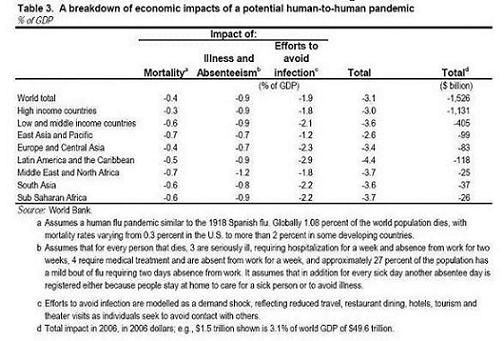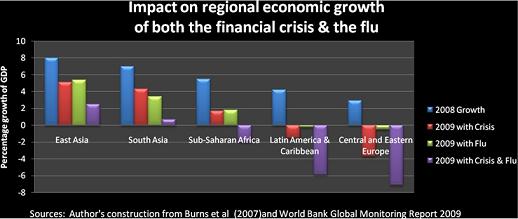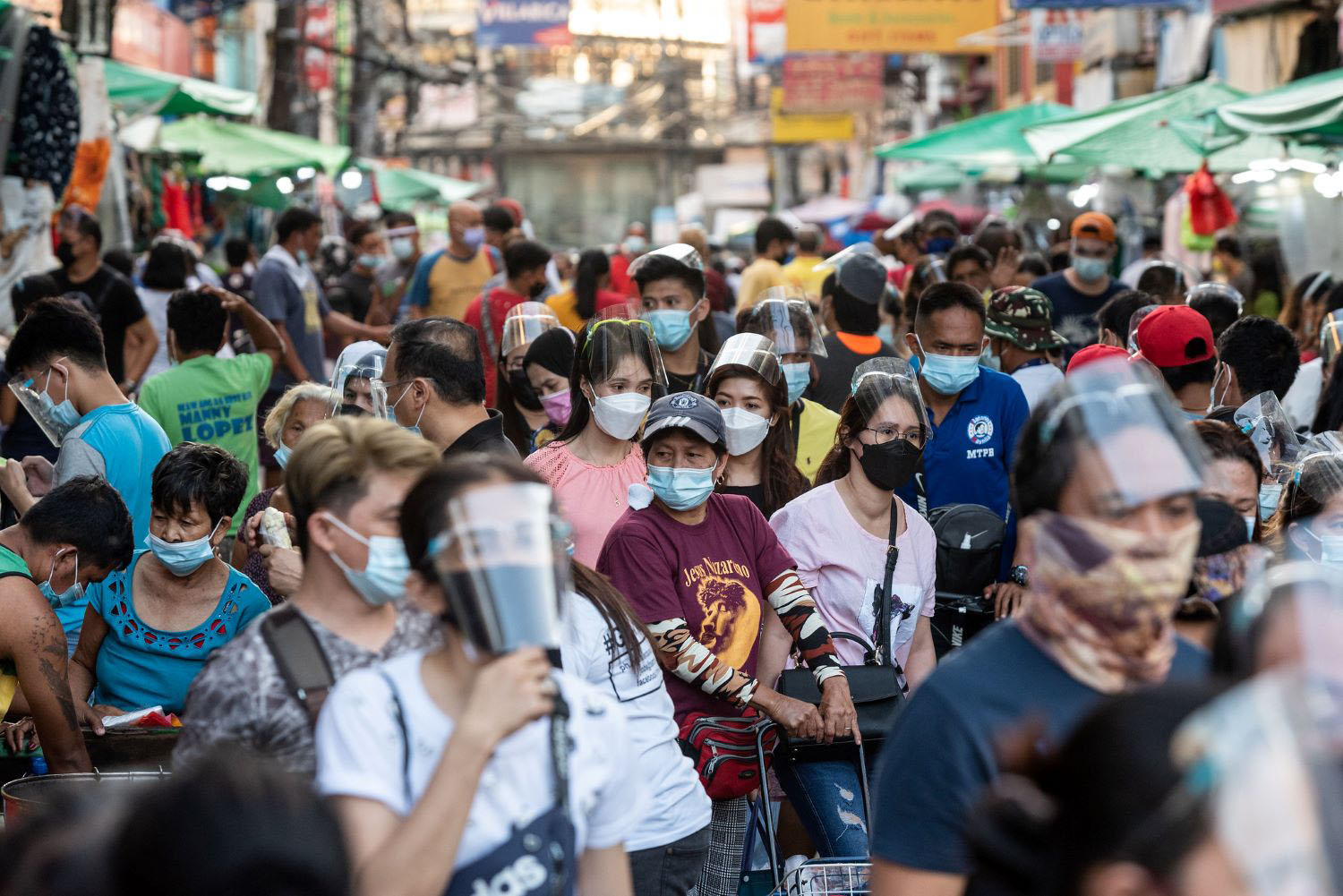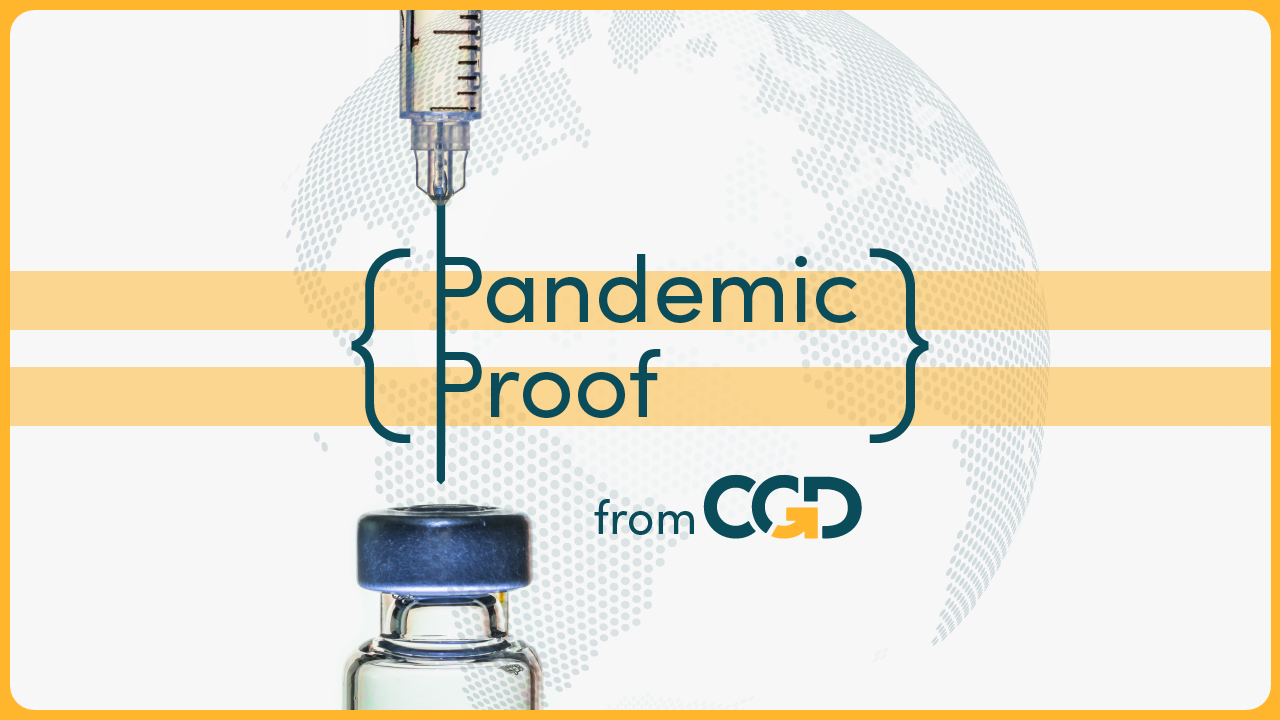The impact of this pandemic flu outbreak has little to do with pigs. And a lot to do with people.
Every time there is a global flu epidemic, we seem to want to blame it on something. In 1918 we called it the
Spanish flu, though Spaniards had nothing to do with it. For the last few years we blamed it on birds, calling it the “avian flu” as if it were the birds’ fault. Now we’re blaming it on pigs, by calling it the “swine flu”. In an effort to appease the public, several countries have
banned the import of pork!
None of this makes any sense. When was the last time you saw a sneezing pork chop?
The genetic code of a specific influenza virus may have snippets of a whole menagerie of viruses, but once it starts to spread among humans, it is a human flu epidemic. Let’s just call it the pandemic flu and get on with it.
What will be the consequences for the developing world? Some of those consequences will be due to the epidemic itself and some due to efforts to control it. And some of those efforts will be irrational and will only serve to exacerbate the economic impact of the disease.
One estimate of the economic impact by region was presented in a discussion paper by Andrew Burns, Dominique van der Mensbrugghe & Hans Timmer of the World Bank in 2007. The following table from
their paper presents their estimate that an extremely serious influenza epidemic on the order of the 1918 episode that killed 50 million people worldwide, would reduce world output by about 3.1 percent in a single year.

These impacts are quite large, especially when added to the impact of the current financial crisis. According to the World Bank’s Global Monitoring Report (
Table 1.1, the growth of GDP in Sub-Saharan Africa this year will be reduced from 5.5 percent last year to 1.7 percent this year, for a reduction of 3.8 percentage points. Burns and his co-authors’ estimate that the impact on that region of a severe pandemic flu epidemic is a reduction in growth of 3.7 percentage points. Thus if we assume the impacts of the financial crisis and the flu epidemic are additive, the total impact on Sub-Saharan Africa of both the crisis and the flu would be to reduce economic growth in Africa from a positive 5.5 percent in 2008 to a negative 2.0 percent in 2009, a doubling of the economic impact due to the economic crisis alone. The following chart presents this computation for several regions of the developing world.

What can be done? Just as with other global threats that proceed at a more tempered pace, the nations of the world must strive to work cooperatively rather than to each protect only its own citizens. First, individual countries can attempt to avoid completely useless measures, such as the banning of pork imports. Second, the Obama administration can take the lead in demonstrating willingness to share its stockpile of antiviral medications with countries in the region – but only where national public health authorities can assure that antiviral drugs will be targeted to health care workers and other first-line responders and be administered with 48 hours of the onset of symptoms. Third, the US and other rich countries, which are relatively well-equipped with the capacity to treat the small minority of patients with respiratory failure, should reinforce pulmonary treatment capacity in hospitals and clinics of the developing world.
Thanks to the H5N1 flu scare of several years ago, the world is much better prepared for this epidemic than it would otherwise be. But much of that preparation is only on paper. Hopefully this episode will be over in a few weeks with nowhere near the impact of the 1918 flu epidemic. When we are looking backward, let’s consider seriously how to help poor countries improve their disease surveillance capacity and strengthen their legal and institutional capacity to effectively impose social distancing measures. The objective for next time must be to prevent a local flu outbreak from going global - so we won’t be in the business of banning sneezing pork chops.
CGD blog posts reflect the views of the authors, drawing on prior research and experience in their areas of expertise.
CGD is a nonpartisan, independent organization and does not take institutional positions.


 These impacts are quite large, especially when added to the impact of the current financial crisis. According to the World Bank’s Global Monitoring Report (
These impacts are quite large, especially when added to the impact of the current financial crisis. According to the World Bank’s Global Monitoring Report ( What can be done? Just as with other global threats that proceed at a more tempered pace, the nations of the world must strive to work cooperatively rather than to each protect only its own citizens. First, individual countries can attempt to avoid completely useless measures, such as the banning of pork imports. Second, the Obama administration can take the lead in demonstrating willingness to share its stockpile of antiviral medications with countries in the region – but only where national public health authorities can assure that antiviral drugs will be targeted to health care workers and other first-line responders and be administered with 48 hours of the onset of symptoms. Third, the US and other rich countries, which are relatively well-equipped with the capacity to treat the small minority of patients with respiratory failure, should reinforce pulmonary treatment capacity in hospitals and clinics of the developing world.
Thanks to the H5N1 flu scare of several years ago, the world is much better prepared for this epidemic than it would otherwise be. But much of that preparation is only on paper. Hopefully this episode will be over in a few weeks with nowhere near the impact of the 1918 flu epidemic. When we are looking backward, let’s consider seriously how to help poor countries improve their disease surveillance capacity and strengthen their legal and institutional capacity to effectively impose social distancing measures. The objective for next time must be to prevent a local flu outbreak from going global - so we won’t be in the business of banning sneezing pork chops.
What can be done? Just as with other global threats that proceed at a more tempered pace, the nations of the world must strive to work cooperatively rather than to each protect only its own citizens. First, individual countries can attempt to avoid completely useless measures, such as the banning of pork imports. Second, the Obama administration can take the lead in demonstrating willingness to share its stockpile of antiviral medications with countries in the region – but only where national public health authorities can assure that antiviral drugs will be targeted to health care workers and other first-line responders and be administered with 48 hours of the onset of symptoms. Third, the US and other rich countries, which are relatively well-equipped with the capacity to treat the small minority of patients with respiratory failure, should reinforce pulmonary treatment capacity in hospitals and clinics of the developing world.
Thanks to the H5N1 flu scare of several years ago, the world is much better prepared for this epidemic than it would otherwise be. But much of that preparation is only on paper. Hopefully this episode will be over in a few weeks with nowhere near the impact of the 1918 flu epidemic. When we are looking backward, let’s consider seriously how to help poor countries improve their disease surveillance capacity and strengthen their legal and institutional capacity to effectively impose social distancing measures. The objective for next time must be to prevent a local flu outbreak from going global - so we won’t be in the business of banning sneezing pork chops.


